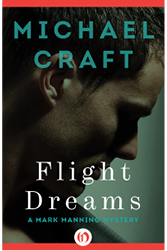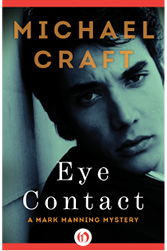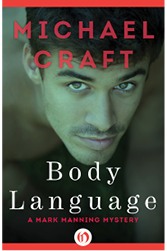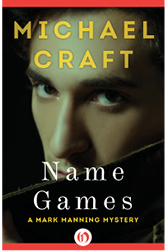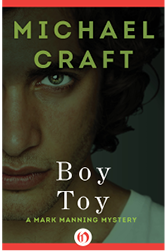Name Games (54 page)

Rising (my knees cracked), I turned to ask the coroner, “Can you estimate the time of death, Vernon?”
He stepped next to me at the bedside. “This is preliminary, of course.” He draped his palm over the thickest part of the boy’s upper thigh, telling us, “The body is still slightly warm.” He poked the leg with his index finger. “The skin still blanches when touched.” Then, using both gloved hands, he gently lifted Jason’s head and moved it about, observing, “The first signs of rigor are evident in the neck and jaw.” Allowing Jason’s head to rest again, Formhals paused to pat it, smoothing a still-lustrous lock of hair above an unhearing ear. Turning to us, he continued, “The room had been closed and air-conditioned, a steady seventy-two. The boy probably died between three and four hours ago.”
Pierce checked his watch. “Nine now. That would put it between five and six.”
Formhals nodded. “Close enough.”
I told them, “That explains where Jason was at six-thirty. But Denny Diggins said he’d been trying to phone him all afternoon and could never get past the answering machine.”
As Pierce made note of this, I glanced around the room, taking my first real look at it (since entering, I’d been focused, naturally, on the body). Jason’s second-floor bedroom was spacious and well furnished, not Frenchy like the rest of the house, but looking like a typical “guy’s room”—well, a typical rich guy’s room. There was a bed, desk, dresser, and a few side chairs, all of matched dark hardwood. The curtains, bedspread, and a large upholstered chair and ottoman shared the same handsome plaid fabric, very nubby, correctly masculine. The thick beige carpeting was perfectly clean, surely wool. There were lots of framed pictures, two (maybe three) wall mirrors, and an abundance of
stuff
—sports gear, trophies, stereo, television, computer, and on the desk, a telephone, the oversize sort of office phone with extra buttons. In spite of Jason’s many possessions, his bedroom had an anonymous, sanitized feeling, like a hotel room.
I didn’t see an answering machine, so I reasoned that Denny’s calls must have been picked up by voice mail. But why hadn’t Jason answered in the first place? Was he there in the bedroom, sick and dying? Or was he simply somewhere else? I realized there was a lot to sort out, and so did Pierce—his face wrinkled in a perplexed scowl as he stood near the bed scratching notes.
“My son was all I had, you know.”
We turned as the decrepit-looking man entered the bedroom from the hall, grasping the doorjamb. He wore a conservative business suit and white dress shirt, but no tie or shoes. Pierce crossed the room to assist him to a chair. “My condolences, Mr. Thrush. I’m so sorry.”
“You still have me, Daddy,” said Mica, appearing in the doorway, still in her Dracula drag. “Don’t forget about me.” Her expression, as usual, was flat and plastic, as if she wore a mask. She said the words through hard-edged black lips, without apparent emotion. Her tone carried nothing to convince us that she meant to console her father or mourn her brother. If anything, she sounded mildly amused—and terribly bored.
The Thrush patriarch glanced briefly at his daughter, as if staring straight through her into the hallway, as if she didn’t exist. Then he turned back to us. Ignoring both the sheriff and the coroner, choosing me, he fixed me in his gaze. Though we’d never met, he explained, “Jason would have followed me in the business,
my
business, the business I founded and nurtured. But now”—he dropped his head backward and laughed at the ceiling—“now it seems the mantle will be passed to Mica.”
“Not yet, Daddy,” she told him, watching me instead of her father. “There’s
so
much left for you to accomplish.” She didn’t mean a word of it, making no attempt to disguise her insincerity.
“May I ask you a few questions, Mr. Thrush?” said Pierce, readying a fresh page of his notebook.
That was my cue—I extracted my own notepad from a jacket pocket and uncapped my Montblanc, hungry for a few facts. I soon learned that Jason’s father was Burton Thrush, age fifty-six. He claimed a history of ill health, which explained why he appeared far older than his years, forcing me to wonder if his son’s unexpected death would simply be too much for him. His wife had died some years ago; Jason and Mica were their only children. He confirmed that Jason was seventeen, Mica twenty-one.
While Pierce conversed with Thrush, I watched Mica saunter through the room. She brushed within a hair’s breadth of Coroner Formhals, pausing to trace her sharp, black fingernail over his strong, black chin and down his throat. She smiled faintly as his eyes widened. He stepped back, giving her a clear path to the bed.
She stood there, beading baby brother with a stare, as if he were holding his breath and they were playing a game. When he didn’t move, she began to appear impatient. With hands on hips, she leaned over the bed. As her hair fell forward, her bare back and most of her ass were exposed squarely to Formhals, who gaped in astonishment for a moment before turning away to fidget with something in his medical bag.
Mica leaned closer over her brother, then smiled. She tried blowing in his ear. Getting no response, she proceeded to tickle him, first his neck, then his armpits, then down his sides, groping under his hips.
Burton Thrush, engrossed in grief, didn’t even notice.
Pierce had a busy night ahead of him and would not be returning to the theater, so he asked a deputy to drive me back.
Walking through the quiet lobby, I peeked through the doors into the auditorium. I’d been gone for about an hour, and Thad was now onstage with Tommy Morales, playing Ryan and Dawson. Having attended the dress rehearsal, I recognized the scene from act two—I’d missed most of the performance. I recalled that there would be a brief scene shift near the end of the show, when I could slip in without disturbing anyone.
Waiting with the door cracked open, I listened to the dialogue. Thad and Tommy were acting up a storm, not dropping a cue, with the packed audience dead quiet, hanging on every word. The scene soon ended with a momentary blackout. As the audience responded with a polite round of applause (nothing effusive yet, as the play’s climax still lay ahead), the houselights came on dimly, signaling a pause while the stage was reset. Opening the door, I returned to my seat.
Neil, Barb, and Glee turned toward me, leaning in their seats, a silent plea for information. But the houselights had already begun to fade, so I replied with an apologetic shrug, raising a finger to my lips. My news would have to wait, which came as something of a relief. For the moment, I was glad to shoo from my mind the recent encounter with Jason’s corpse—and his dysfunctional family—replacing that disturbing reality with a few minutes of theatrical distraction.
Unfortunately, I was soon reminded that the last scene of
Teen Play
bore a striking resemblance to the scenario that had just been played out at the Thrush residence. The action resumed onstage:
The rivalry that has been developing between the two main characters, Ryan and Dawson, now climaxes in murder. It is the night when the play within the play is scheduled to open, and Dawson kills Ryan, stepping into the leading role.
Thad and Tommy gave a chilling, realistic performance of the dramatic ending, and the audience reacted as intended, momentarily horrified by the ruthless bludgeoning they witnessed. But I was all the more stunned—not that the staged gore bore any physical similarity to Jason Thrush’s demise, but the circumstances were staggeringly alike. Surely, I feared, as soon as the news broke that Jason had died that night, everyone who had seen the play would make the same connection, wondering if art had imitated life—or vice versa.
Suddenly the room was dark, and the audience burst into applause. I wasn’t even conscious of the play’s final moments, but it had ended, and the crowd loved it. I felt Neil hug my shoulder; Barb leaned over him to give me a thumbs-up; Glee scribbled notes with a wide, happy grin. Thad, it seemed, was a triumph. During curtain call, when it was finally his turn to walk downstage for a bow, cheers rang from the crowd, and within moments, we were all on our feet. Thad dutifully waved Denny Diggins to the stage to share the applause, and I had to admit that our pompous fledgling playwright had delivered on his promise. Joining the others, I clapped all the louder.
After several curtain calls, my arms ached and my palms stung. At last the applause faded, and the actors left the stage as the houselights came on.
“Mark,” Glee told me, stretching to shake my hand, “it was
mah-
velous, wasn’t it?” We all laughed our agreement. “I’ll scamper right over to the office to write my review—there’s just enough time to make the morning edition.”
I then realized that I myself had a deadline to meet. As the only newsman on the scene when Jason’s body was discovered, I’d need to “switch hats” tonight, stepping out of my publisher’s role and back into that of reporter. Duty called. It was a page-one story—and to think that only yesterday I’d been bemoaning the lack of local news.
“Actually,” I told Glee, “I need to take care of something back at the paper as well. I’ll give you a ride.” The
Register
’s offices were only a few blocks away, and I assumed Glee had walked to the theater, as her apartment was also downtown.
“Hold on,” Neil interrupted. “We’ve got to see Thad first. He’ll be expecting us backstage. Look”—he pointed to a side door near the front of the theater—“others are herding back there already.”
He was right. We
had
to congratulate Thad—I felt bad enough that I’d missed most of the performance. Glee and I could spare a few minutes before rushing to our computers. Besides, if we needed more time, I was in a position to fudge our deadline. After all, presses now rolled at my command. “Thanks for the reminder,” I told Neil, giving him a hug. “First things first.”
Buy
Boy Toy
Now!
Michael Craft is the author of more than a dozen novels and three stage plays. He is best known as the author of the popular Mark Manning series, set in the Midwest, as well as the Claire Gray series, which takes place in Palm Springs, California. Three of Craft’s novels have been honored as national finalists for Lambda Literary Awards. His latest mystery novel,
The MacGuffin
, features a new protagonist, architect Cooper Brant.
All rights reserved under International and Pan-American Copyright Conventions. By payment of the required fees, you have been granted the non-exclusive, non-transferable right to access and read the text of this ebook onscreen. No part of this text may be reproduced, transmitted, downloaded, decompiled, reverse engineered, or stored in or introduced into any information storage and retrieval system, in any form or by any means, whether electronic or mechanical, now known or hereinafter invented, without the express written permission of the publisher.
This is a work of fiction. Names, characters, places, and incidents either are the product of the author’s imagination or are used fictitiously. Any resemblance to actual persons, living or dead, businesses, companies, events, or locales is entirely coincidental.
Copyright © 2000 by Michael Craft
Cover design by Mumtaz Mustafa
978-1-4804-3397-7
This edition published in 2013 by Open Road Integrated Media
345 Hudson Street
New York, NY 10014

